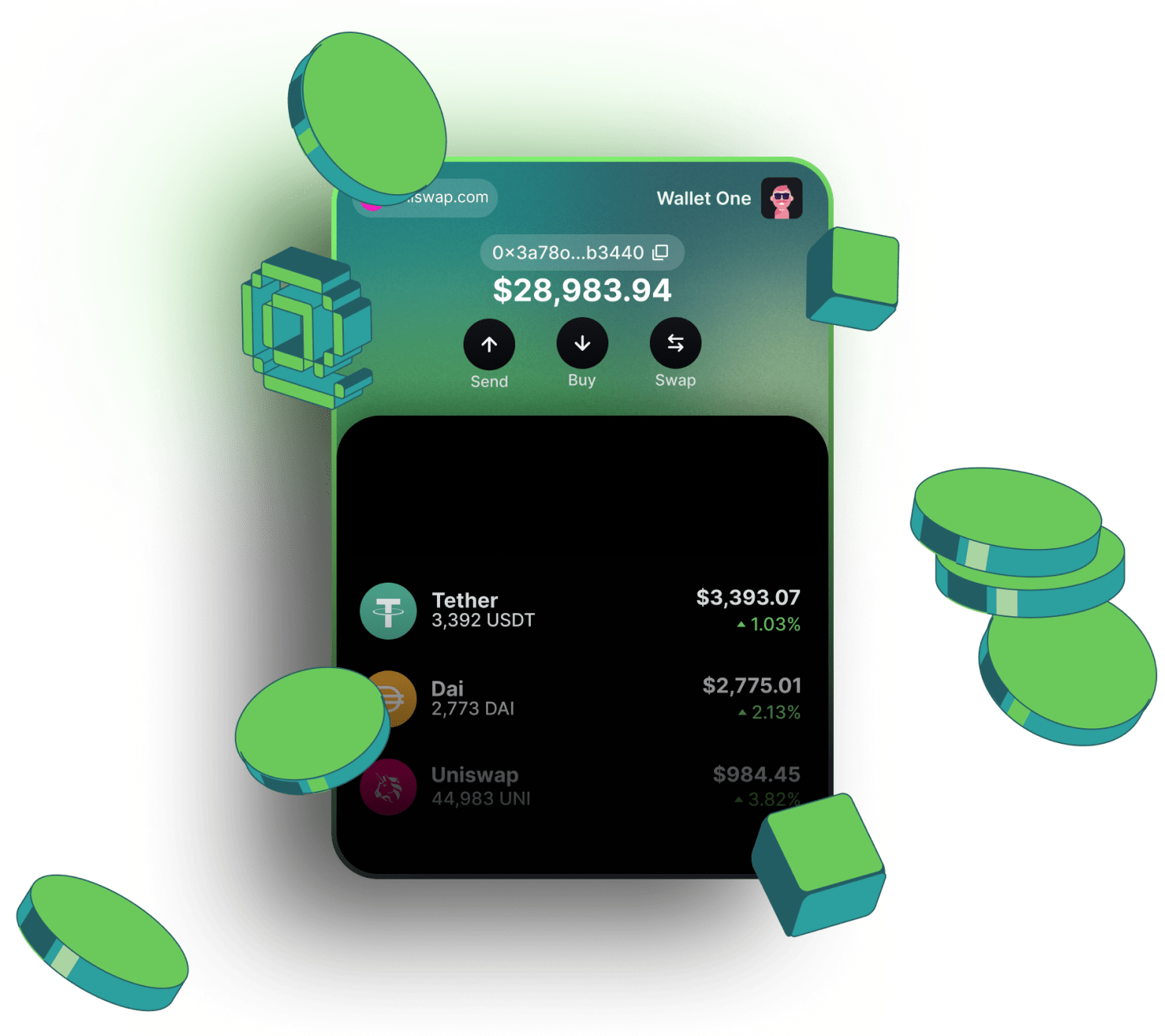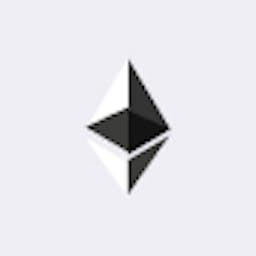Wigwam is the best  Zetachain blockchain crypto wallet
Zetachain blockchain crypto wallet

Why choose the Wigwam crypto app?
Work with Zetachain Testnets and Mainet
Buy Zetachain tokens, including native token, by using a credit card
Swap Zetachain-based tokens directly in the wallet
Possibility to connect the wallet to all Zetachain blockchain dAps: DeFi, DAO, Gamings, etc
How to get a Zetachain address in Wigwam web wallet
Create a wallet in Wigwam
Choose a Zetachain network from the dropdown menu
Copy you Zetachain address
Zetachain Blockchain review
ZetaChain is a Layer-1 cross-blockchain that enables seamless interaction between various blockchains and enhances their connectivity and interoperability, even those like Bitcoin, which lacks smart contract capabilities. ZetaChain introduced the concept of OmniChain smart contracts which allowed it to become a decentralized cross-blockchain smart contract ecosystem where users, developers, and applications can operate across other blockchains effortlessly.
Origins and Vision
ZetaChain was founded by Dan Romero, Sam Rosenblum, and John Yi in 2021. They aimed to bridge the gap between different blockchains, unshackling the crypto and digital finance world and redefining the entire blockchain landscape. ZetaChain achieved that with its omnichain capabilities, generic smart contracts, and flawless messaging across all blockchains. This seamless connectivity makes payments and transfers of Non-Fungible Tokens (NFTs) easier.
Key Milestones
ZetaChain was introduced on December 15, 2021, as a decentralized computer for blockchains, allowing decentralized applications to seamlessly operate across chains, and increase the interoperability gap within the blockchain space.
The year 2022 was very productive for ZetaChain as its first testing environment was launched for its community to experience the Omnichain functionality. In the same year, its explorer, ZetaScan was launched.
ZetaChain also launched its Troy, Sparta, Athens 1 and 2 testnets in the year 2022 while its first-ever Bitcoin Smart Contract was also enabled, and various other testnet integrations that supported its interoperability with Ethereum, BSC, Polygon, and other blockchains.
In 2023, ZetaChain made all its core technologies open source, allowing anyone from around the world to contribute. The decentralized apps on its testnet also reached the 100 mark with various DeFi, NFTs, Games, and many more.
What Consensus Algorithm Does ZetaChain Use
ZetaChain utilizes a Tendermint consensus mechanism, a partially synchronous Byzantine Fault Tolerant (BFT) consensus algorithm. Validators nodes on ZetaChain vote on block proposals with their voting power being proportional to their staking tokens (ZETA). These Validators also update external chains with the help of their key signing. It is also worth noting that validators are required to be online all the time, ready to participate in the constant block production and receive rewards and transaction fees.
How ZetaChain Technically Solved Problems with Scalability, Decentralization, and Speed
The ZetaChain utilizes its consensus mechanism, the Tendermint consensus mechanism to address the issues of scalability and speed, the mechanism is capable of supporting around 300 nodes in production with the possibility of future upgrades that would support even more nodes. The mechanism also doesn’t need any confirmation and reaches instant finality (approximately 5 seconds). This scalability and efficiency of Tendermint consensus, empower Zetachain and reach the transaction throughput of up to 4000+ TPS (transactions per second).
To address the issue of decentralization, ZetaChain employs its unique architecture that employs a leaderless Threshold Signature Scheme (TSS). The Threshold Signature Scheme (TSS) is utilized within the ZetaChain ecosystem for key generation and signing in a distributed manner. The TSS distribution promotes decentralization as the signing key is distributed among validators and ensures that no single validator or outside person has access to the complete private key and no private information is leaked.
Who are the Main Players in the ZetaChain Blockchain
In the ZetaChain’s ecosystem validators are the main players, who are running the blockchain and producing blocks. There are three different roles of validators within the ecosystem, including:
Validators: Validators are crucial participants in the ZetaChain ecosystem, as they are responsible for block productions and validating transactions. They stake their ZETA and participate in the voting on block proposals, the more ZETA a validator has staked the more voting power he has. They are required to be online continuously and receive rewards and transaction fees.
Observer: Observers utilize their full nodes of external chains to monitor transactions, events, and states at specific addresses across all externally connected chains. They maintain the integrity and security of the network by ensuring that all the events are accurate within the ZetaChain blockchain and external chains.
TSS Signers: These are the signers who hold standard ECDSA/EdDSA distributed keys and are responsible for authenticating interactions with external chains.
DeFi Ecosystem on ZetaChain blockchain
ZetaChain has a robust DeFi ecosystem, as its focus on scalability, energy efficiency, privacy, and interoperability aligns with the core principles of the DeFi ecosystem. Furthermore, ZetaChain’s Omnichain smart contract significantly expands the potential of DeFis and dApps as these can interact with multiple blockchains simultaneously, including non-smart contract chains like BitCoin and DogeCoin.
ZetaChain has many trending DeFi in its ecosystem like EddyFinance, ZetaEarn, and iZiSwap. It also partnered with DEXs like SushiSwap and Curve Finance to enable Bitcoin transactions with different blockchains and in the DeFi ecosystem, expanding the scope of Bitcoin beyond its traditional role as a store of value or a digital currency.
NFTs Marketplaces on ZetaChain Blockchain
ZetaChain has rich NFT marketplaces in its ecosystem as the blockchain has managed to tap into the untouched territory by deploying smart contracts that can interact with native Bitcoin. ZetaChain’s seamless interoperability between different blockchains, allows artists and collectors to mint, sell, trade, and exchange NFTs across various chains effortlessly. “OpenSea”, “Nifty Gateway”, and “MintBase” are some of the famous NFT marketplaces in ZetaChain’s ecosystem.
Tokenomics and Gas Usage on ZetaChain Blockchain
ZETA is the native utility token of the ZetaChain and it plays various roles in its ecosystem:
Gas Fees: The ZETA token is utilized for paying gas fees in the ZetaChain, for processing on-chain and cross-chain transactions.
Governance: ZETA token holders can propose proposals and vote on network upgrades, and policy upgrades and shape the future of the blockchain.
Rewards: Validators are paid in ZETA for securing the network, incentivizing them to act in the network’s best interest, ensuring the network's security, longevity, and scalability
Conclusion
ZetaChain has emerged as a revolutionary blockchain, challenging the long status quo and redefining the world of blockchain with its innovative and unique features. The blockchain introduced the Omnichain concept allowing cross-chain connectivity and interoperability, and easy creation of cross-blockchain decentralized applications that are public, trustless, and persistent.
FAQ
ZETA is the native utility and gas token of the Zeta blockchain.
Enter your public wallet address in the search bar of the ZetaScan to gain access to all your account history and transaction specifics.
To keep your crypto transactions secure and safe, using a private crypto wallet for your ZETA is the best practice. Wigwam Wallet, imToken Wallet, MetaMask Wallet, Trust Wallet, and TokenPocket Wallet are some noteworthy wallets to consider, as there is not a single best wallet.
Open MetaMask in your browser, access the profile icon at the top-right and choose "Settings" from the dropdown. Navigate to "Networks," then click "Add Network" Opt for "Add a network manually" and input the following details:
- Network Name: ZetaChain Blockchain
- RPC URL: https://zetachain-evm.blockpi.network/v1/rp
- ChainID: 7000(0x1b58)
- Symbol: ZETA
- Block Explorer URL: ZetaScan
Save your changes by clicking the "Save" button.
Many popular projects are running on ZetaChain, including EddyFinance, Zeta Earn, iZiSwap, OpenSea, Niftygateway, Mint Fun, MintBase, and many more.





